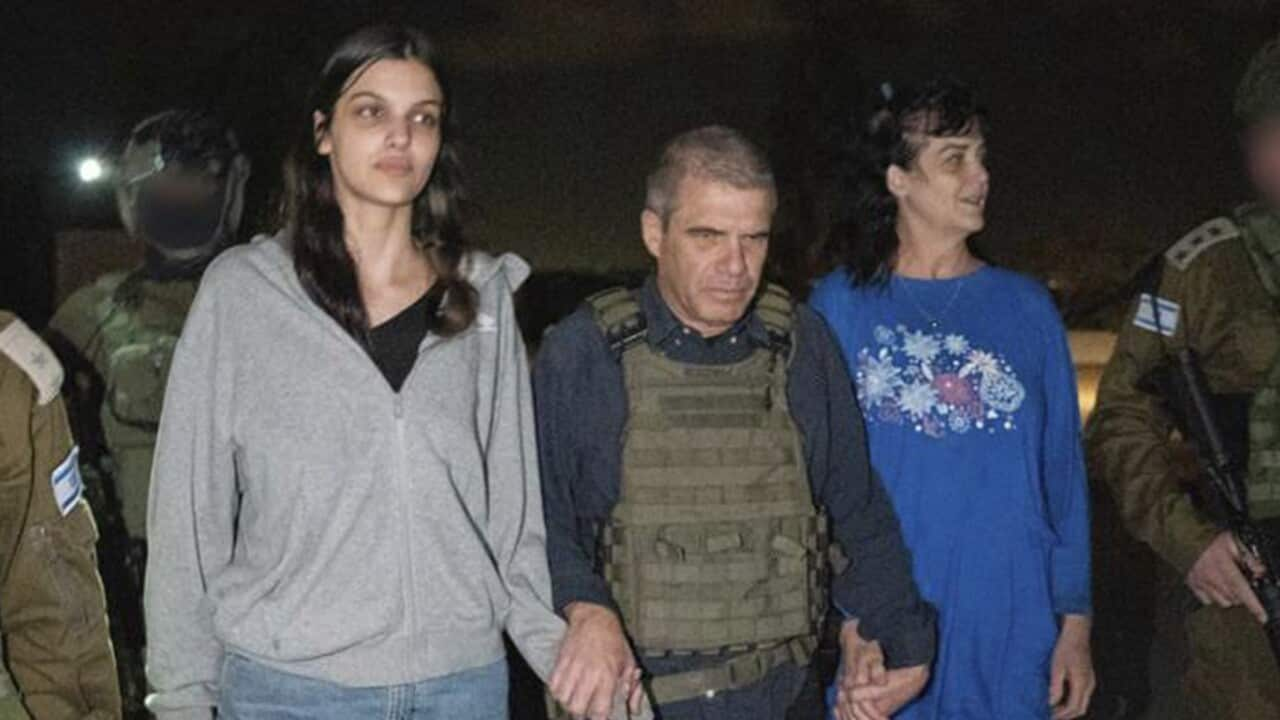TRANSCRIPT
Sounds effects of trucks
At Egypt's crossing with the Gaza Strip, UN Secretary-General Antonio Guterres stands ready to witness the moment when the first of up to 20 aid trucks roll into Gaza for the first time in two weeks.
His message: get the aid trucks moving.
"And they are a lifeline to the people in Gaza. The difference between death and life with water and food, with medicines, with everything the people of Gaza need. And at the same time, when we have the trucks stuck at the border, we have the people in Gaza in a dramatic situation. Children, mothers and people born without water and electricity, without food, without medicine and so we must stop this dramatic impasse."
But despite US President Joe Biden's estimate that the wait would only be 48 hours after Egypt agreed to open access, the aid trucks have yet to cross into Gaza.
Repairs are continuing on roads damaged by retaliatory Israeli airstrikes in response to the Hamas attack on Israel on October 7.
The blockade and bombing has made a bad situation worse for the 2.3 million Palestinians living in Gaza that has been under a blockade by Israel and Egypt since Hamas took control in 2007.
Mr Guterres says his concern is for civilians - both Israelis and Palestinians - who have become casualties in the war.
He repeated his call for a humanitarian ceasefire.
Sounds of protesters chanting
Also at the border crossing, people gathered in support of Palestinians in Gaza.
Mostafa Elsayed says the situation is intolerable.
"The Egyptian people's position is clear and frank. We are against what is happening in Gaza. The slander of civilians, the killing of innocents, and the colonisation of the Palestinian territories. Israel’s justifications are unconvincing, and slandering civilians is unacceptable to us."
Meanwhile, an American woman, Judith Raanan, and her 17-year-old daughter Natalie are due to be reunited with family in Israel, after being released by Hamas - the first to be freed from a group of some 200 that were kidnapped by Hamas gunmen.
Hamas says they were released for humanitarian reasons in an agreement with the Qatari government.
Rabbi Meir Hecht says he is relieved to see members of his congregation freed.
"Let's continue to pray for all of the hostages to be returned and for the families of thousands of people who lost lives in this evil massacre, that they should find comfort and healing and that we should finally, finally come to a time when we've eradicated evil from this world."
The Israeli military says it believes most of those who were abducted and taken to Gaza are still alive.
The International Committee of the Red Cross helped to transport the freed Americans to Israel.
The committee's president, Mirjana Spoljaric, says the release of hostages is "a sliver of hope" that more could also be released.
"We are extremely relieved that the families now be reunited after two weeks of agony. We continue to urge for action to protect and alleviate the suffering for all civilians affected by this devastating conflict. We continue to call for the immediate release of all hostages. And we stand ready to help them and their families in any way we can."
The war has some observers expressing concern about the potential for a broader conflict.
Israel declared its northern border with Lebanon a closed military zone after clashes with Hezbollah, an Iran-backed group that shares the same objective as Hamas of armed resistance against Israel.
Based in Beirut, Nicholas Blanford is the author of a book on a military history of Hezbollah.
He says the risk factors are there for a potential regional conflict.
"If the situation reaches a full-scale war between Hezbollah and Israel, it won't be confined to just Hezbollah and Israel. I think we will see a regional war. Because of the influence that Iran has across the region. We will see the Syrian front opened up. There is Hezbollah on the Syrian territory. There are numerous Iran-backed organisations also in Syrian territory. There are Iran-backed organisations in Iraq that could enter the frame. The Houthis in Yemen who are backed by the Iranians, they have declared they will get involve in a conflagration. And we can also see Iran getting involved directly as well. So, I think it has the potential to become regional war if the Hezbollah-Israel confrontation escalates."













